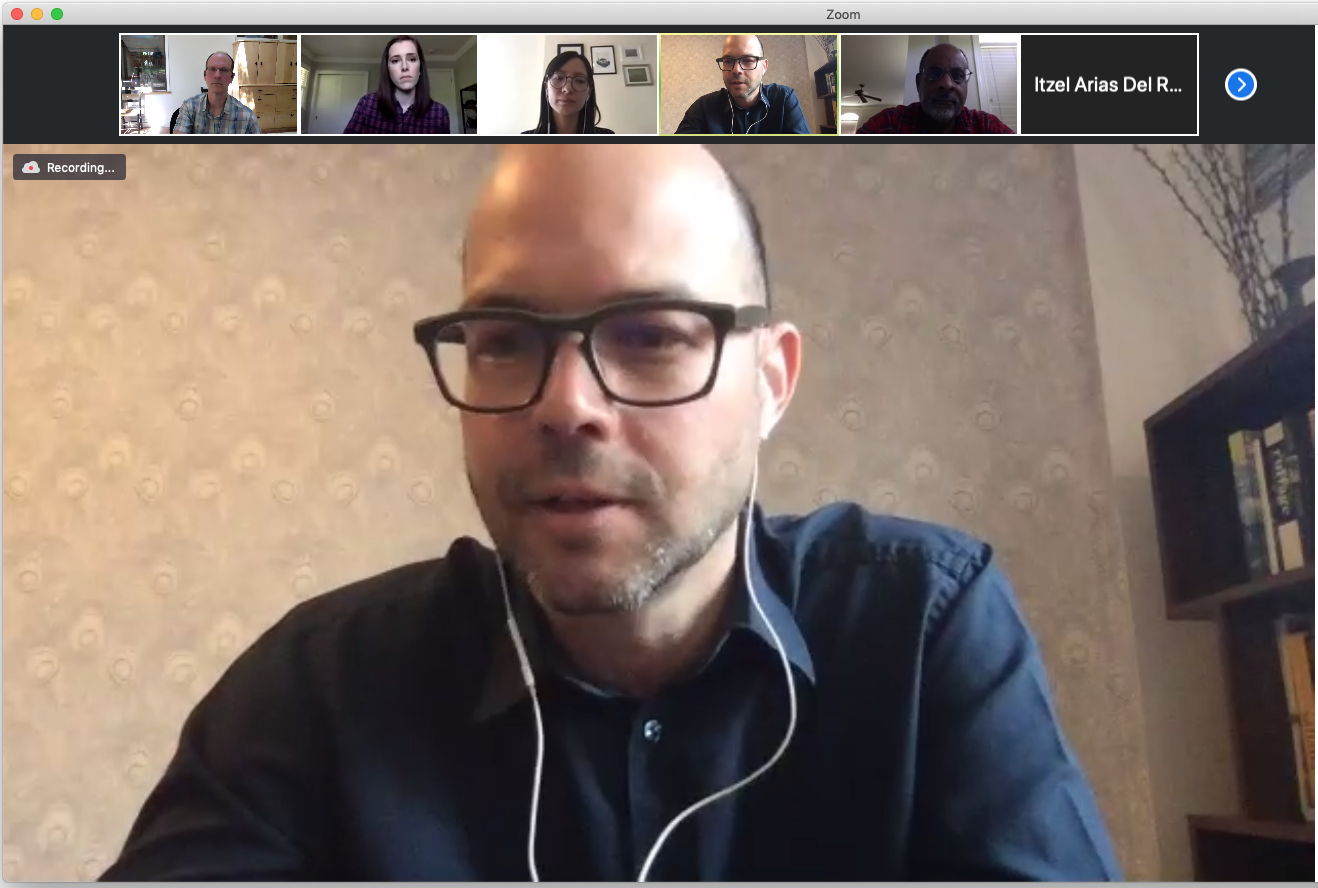A virus stopped the world, and we all had to find ways to move forward in our research and teaching while maintaining physical distance. This is evolutionary medicine’s time to shine: how can we use our knowledge and tools to help the world navigate this crisis?
For TriCEM, the COVID-19 crisis meant the cancellation of multiple landmark events, including TriCEM breakfasts, a showcase of our funded graduate students, the Evolutionary Medicine Summer Institute, and a public outreach event with the North Carolina Museum of Natural Sciences.
Rather than letting that set us back, we jumped on the opportunity to rally the Evolutionary Medicine community to do what we do best: analyze and understand health-related topics with the guidance of the biggest experts in the field. In a partnership with UCLA Evolutionary Medicine Interdisciplinary Center, the ASU Center for Evolutionary Medicine, the Pittsburgh Center for Evolutionary Biology and Medicine, the University of Zurich Institute of Evolutionary Medicine, and the International Society for Evolution, Medicine, and Public Health (ISEMPH), we launched the new Club EvMed, a virtual weekly discussion group centered around an evolutionary medicine topic.
Every week, one or two experts give a brief presentation, followed by questions and discussion with scientists, medical doctors, high school teachers, and evolutionary medicine enthusiasts from around the world. We are focusing on topics related to COVID-19 for the moment, but plan on expanding our list of topics, always keeping up with what is happening in the world of evolutionary medicine.
In our first Club EvMed, NC State professors Jeff Thorne and David Rasmussen walked us through suggestions on how to incorporate COVID-19 in the teaching of evolution at the undergraduate level. Showcasing multiple virtual resources, they presented examples on how to use COVID-19 as a tool to teach core concepts such as phylogenies, molecular clocks, and divergence times. Participants weighed in on how to adapt those concepts to high school classes, and discussed the best methods to incorporate evolutionary medicine perspectives into Introductory Biology classes.
Our second Club EvMed was led by Kevin Olival and Hongying Li from the EcoHealth Alliance, a multidisciplinary NGO operating worldwide to develop science-based approaches to conservation and pandemic prevention. They presented two recent papers focusing on some of the steps that could help prevent a new pandemic, applying a One Health approach to the emergence of SARS-CoV-2. Their presentation was followed by a fruitful discussion on the human-wildlife interfaces that are riskier, the role of wet markets in the spread of novel diseases, and the complex issue of regulating wildlife trade.

For the third Club EvMed, we ventured once again into teaching. Vaughn Cooper, from the University of Pittsburgh, talked to us about his recent results regarding the ongoing evolution of SARS-CoV-2, and walked us through his method for developing publicly accessible outreach materials regarding COVID-19. The ensuing discussion was a blend of informed suggestions on how to design more effective outreach materials with questions regarding the consequences of COVID-19’s response to selection.
We hope you will join us for the next Club EvMed, to be held Friday May 1st at 12pm ET. This time we will hear more from the animal kingdom, as Julia Buck, from the University of North Carolina at Wilmington, and Dana Hawley, from Virginia Tech, tell us what we can learn about social distancing from animals such as lobsters, ants and vampire bats. You can sign up here to receive a link to the event.
Help us make Club EvMed an even more inclusive and widespread event. Our format makes this an event suitable for all, from timid listeners to active talkers, in any part of the world. Sign up, catch up with recordings of our previous events and get more information at TriCEM’s Club EvMed website.
[ABTM id=1135]
